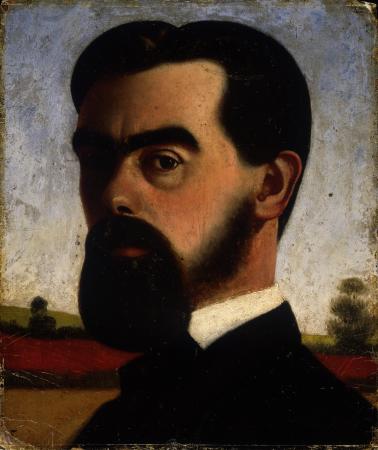Frases célebres de Samuel Butler
Primeras líneas de la traducción de Butler de la Ilíada (1898).
Fuente: [Butler] (2015).
Parte II - Moralidad elemental
The Note-Books of Samuel Butler (1912)
Fuente: [Butler] (1973).
Parte I - Señor, ¿qué es el hombre?
The Way of All Flesh (1903)
Fuente: [Butler] (1912).
Capítulo 13
The Way of All Flesh (1903)
Fuente: [Butler] (1973).
Capítulo 5
The Way of All Flesh (1903)
Fuente: [Butler] (1973).
Frases de hombres de Samuel Butler
The Fair Haven, memorias del difunto John Pickard Owen, cap. 3 (1873).
Fuente: [Butler] (2015).
Vida y hábitos, cap. 5 (1877).
Fuente: [Butler] (2005).
“El hombre que se deja aburrir es incluso más despreciable que el aburrido.”
The Fair Haven, memorias del difunto John Pickard Owen, cap. 3 (1873).
Fuente: [[Butler], Samuel, The Fair Haven, CreateSpace Independent Publishing Platform, 1952] ISBN 1979911223
Samuel Butler Frases y Citas
Capítulo 27
Erewhon (1872)
Fuente: [Butler] (2010).
Capítulo 12
Erewhon (1872)
Fuente: [Butler] (2010).
Capítulo 9
Erewhon (1872)
Capítulo 3
Erewhon (1872)
Fuente: [Butler] (2010).
“Una gallina es solo la forma en que un huevo hace otro huevo.”
Vida y hábitos, cap. 8 (1877).
Fuente: [Butler] (2005).
“La vida y la muerte están equilibradas como si estuvieran al borde de una navaja.”
Vida y hábitos, cap. 8 (1877).
Fuente: [Butler] (2015).
A Psalm of Montreal, cap. 5 (1884).
Fuente: [[Butler], Samuel, The essential Samuel Butler, Dutton, 1950]
Samuel Butler: Frases en inglés
Vice and Virtue, iii
The Note-Books of Samuel Butler (1912), Part II - Elementary Morality
Thinking
The Note-Books of Samuel Butler (1912), Part V - Vibrations
Agonising
The Note-Books of Samuel Butler (1912), Part VII - On the Making of Music, Pictures, and Books
The Art of Covery
The Note-Books of Samuel Butler (1912), Part XI - Cash and Credit
Ramblings In Cheapside (1890)
“Time is the only true purgatory.”
Purgatory
The Note-Books of Samuel Butler (1912), Part XIV - Higgledy-Piggledy
Moral Influence
The Note-Books of Samuel Butler (1912), Part VI - Mind and Matter
“The devil tempted Christ; yes, but it was Christ who tempted the devil to tempt him.”
Further Extracts from the Note-Books of Samuel Butler http://books.google.com/books?id=zltaAAAAMAAJ&q=%22The+devil+tempted+Christ+yes+but+it+was+Christ+who+tempted+the+devil+to+tempt+him%22&pg=PA76#v=onepage, compiled and edited by A.T. Bartholomew (1934), p. 76
The Art of Propagating Opinion
The Note-Books of Samuel Butler (1912), Part X - The Position of a HomoUnius Libri
Sin
The Note-Books of Samuel Butler (1912), Part II - Elementary Morality
Making Notes
The Note-Books of Samuel Butler (1912), Part VII - On the Making of Music, Pictures, and Books
“The world will, in the end, follow only those who have despised as well as served it.”
The World
The Note-Books of Samuel Butler (1912), Part XXIV - The Life of the World to Come
Populus Vult
The Note-Books of Samuel Butler (1912), Part XII - The Enfant Terrible of Literature
Posthumous Life, i
The Note-Books of Samuel Butler (1912), Part XXIV - The Life of the World to Come
“Life is the art of drawing sufficient conclusions from insufficient premises.”
Life, ix
The Note-Books of Samuel Butler (1912), Part I - Lord, What is Man?
Fuente: Erewhon (1872), Ch. 18
Vice and Virtue, ii
The Note-Books of Samuel Butler (1912), Part II - Elementary Morality
“You can do very little with faith, but you can do nothing without it.”
Faith, ii
The Note-Books of Samuel Butler (1912), Part XXI - Rebelliousness
New Ideas
The Note-Books of Samuel Butler (1912), Part VII - On the Making of Music, Pictures, and Books
Future and Past
The Note-Books of Samuel Butler (1912), Part XIV - Higgledy-Piggledy
“Truth consists not in never lying but in knowing when to lie and when not to do so.”
Falsehood, i
The Note-Books of Samuel Butler (1912), Part XIX - Truth and Convenience
The Credulous Eye
The Note-Books of Samuel Butler (1912), Part IX - A Painter's Views on Painting
Ramblings In Cheapside (1890)
Adam and Eve
The Note-Books of Samuel Butler (1912), Part XVI - Written Sketches
Reputation
The Note-Books of Samuel Butler (1912), Part XIV - Higgledy-Piggledy
“The best liar is he who makes the smallest amount of lying go the longest way.”
Ch. 39 http://books.google.com/books?id=wZAEAQAAIAAJ&q=%22The+best+liar+is+he+who+makes+the+smallest+amount+of+lying+go+the+longest+way%22&pg=PA190#v=onepage
The Way of All Flesh (1903)
“If a man would get hold of the public era, he must pay, marry, or fight.”
Ramblings In Cheapside (1890)
God and Man
The Note-Books of Samuel Butler (1912), Part II - Elementary Morality
